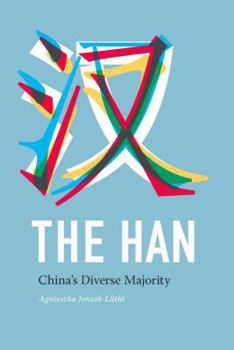The Han: China's Diverse Majority
(Part of the Studies on Ethnic Groups in China Series)
Select Format
Select Condition 
Book Overview
Open-access edition: DOI 10.6069/9780295805979
This ethnography explores contemporary narratives of "Han-ness," revealing the nuances of what Han identity means today in relation to that of the fifty-five officially recognized minority ethnic groups in China, as well as in relation to home place identities and the country's national identity. Based on research she conducted among native and migrant Han in Shanghai and Beijing, Aqsu (in Xinjiang), and the Sichuan-Yunnan border area, Agnieszka Joniak-Luthi uncovers and discusses these identity topographies. Bringing into focus the Han majority, which has long acted as an unexamined backdrop to ethnic minorities, Joniak-Luthi contributes to the emerging field of critical Han studies as she considers how the Han describe themselves - particularly what unites and divides them - as well as the functions of Han identity and the processes through which it is maintained and reproduced.
The Han will appeal to scholars and students of contemporary China, anthropology, and ethnic and cultural studies.





